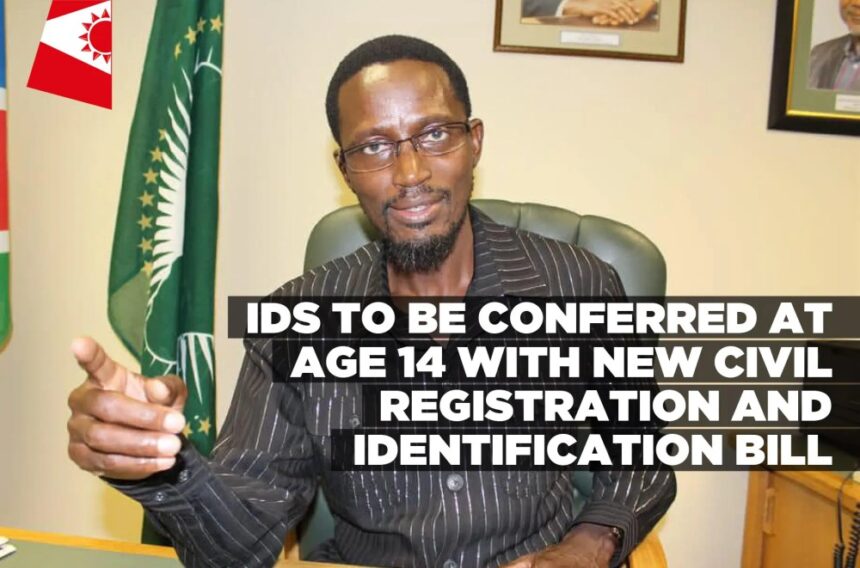Staff Reporter
THE new Civil Registration and Identification Bill will, among other things, allow Namibians to obtain their ID cards at the age of 14, enabling school-going children to acquire their IDs early enough before sitting for their national exams. The Bill was introduced to parliament this week by Dr. Daniel Vh Kashikola, Deputy Minister of Home Affairs, Immigration, Safety, and Security.
Dr. Kashikola explained that although the Identification Act was enacted after Namibia gained independence, it was drafted based on manual registration processes and systems. “The current legislative provisions do not adequately cater to the prevailing needs of the current civil registration and identity management environment. The Bill that I am introducing will amalgamate the Births, Marriages, and Deaths Registration Act, 1963; Aliens Act, 1937; Identification Act, 1996; and certain provisions of the Marriage Act, 1961,” Dr. Kashikola said.
He further added that when obtaining new IDs, other biometrics such as iris and facial recognition, which are possible at a younger age, will be integrated into Namibia’s identity management system.
Additionally, Dr. Kashikola explained that the bill will effectively deter people from providing false ages to authorities in order to gain benefits such as pension payouts. “One of the issues we have in this country is people changing their dates of birth as they please, sometimes intentionally changing to a wrong age. Some people change their dates of birth when they want to retire or when they do not want to retire. Sometimes the change of age is just to obtain a certain benefit, and then they change back to the correct age later. The Bill makes provision for the Age Determination Committee as a statutory body to deal with matters like this,” Dr. Kashikola explained.
The Deputy Minister of Home Affairs added that the Age Determination Committees will be empowered to determine one’s age based on available documentation and evidence. When it is not possible to make the determination, the committees will invoke the procedure in the Child Care and Protection Act (for children) or refer the applicant to a medical practitioner (in the case of adults).
Another aspect of the bill will criminalize the offense of not recording a cause of death. Through the introduction of e-notification systems, medical personnel will notify births and deaths, including causes of death.
“While we are doing very well in the registration of deaths, urgent improvement is required in recording causes of death by doctors. Doctors do not update causes of death, and this negatively affects the mortality and causes of death statistics, which are required for developmental planning. Like the current Births, Marriages, and Deaths Registration Act, this Bill also makes it mandatory for doctors to record causes of death on the system. However, distinctly in this Bill, willful failure to notify a cause of death is a criminal offense,” the minister concluded.



Leave a Reply